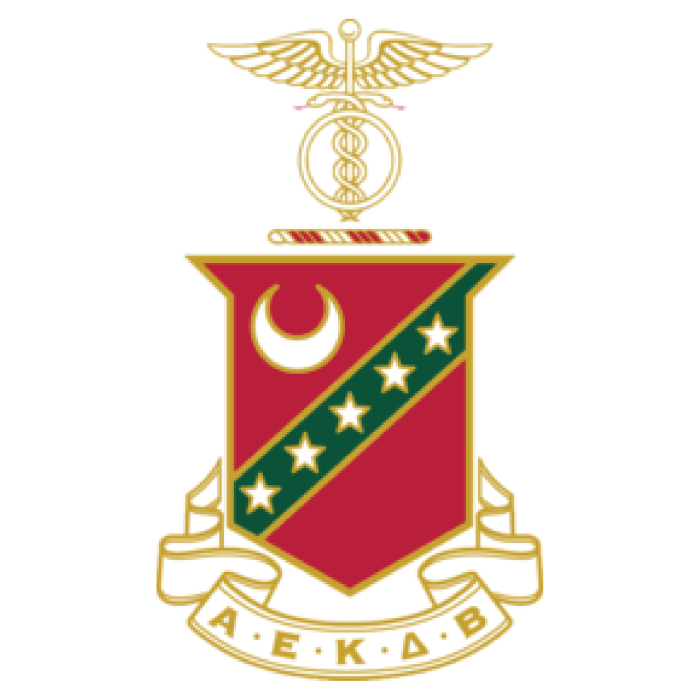Unveiling the Phi Sigma Kappa Creed, a testament to the fraternity’s ideals, we embark on a journey through its history, content, and enduring impact. This creed serves as a compass for members, shaping their actions and fostering a sense of brotherhood.
Through its eloquent language and profound symbolism, the creed articulates the core values that have guided Phi Sigma Kappa since its inception.
The History of the Phi Sigma Kappa Creed
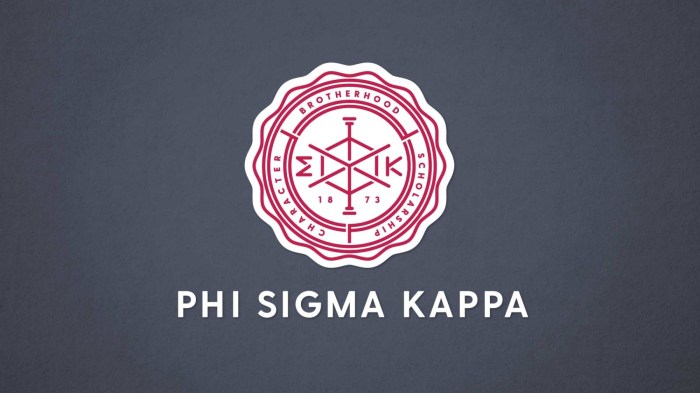
The Phi Sigma Kappa creed, a cornerstone of the fraternity’s values and ideals, has a rich history dating back to the early 20th century. Its development was driven by a desire to articulate the fraternity’s core principles and provide guidance for its members.
Timeline of the Creed’s Development
- 1910:The first version of the creed was drafted by a committee led by Grand Vice-President William H. Preston.
- 1912:The creed was formally adopted by the fraternity at its 14th National Convention.
- 1922:A revised version of the creed was approved by the fraternity’s Grand Chapter.
- 1950:The creed was again revised to reflect the changing values and aspirations of the fraternity.
Motivations Behind the Creation of the Creed
The creation of the Phi Sigma Kappa creed was motivated by a desire to:
- Define the fraternity’s core values and principles.
- Provide guidance for members in their personal and professional lives.
- Foster a sense of unity and brotherhood among members.
- Inspire members to strive for excellence in all aspects of their lives.
Key Figures Involved in the Writing of the Creed
Several key figures played a significant role in the writing and development of the Phi Sigma Kappa creed:
- William H. Preston:Grand Vice-President who led the committee that drafted the first version of the creed.
- Clarence E. Works:Grand President who oversaw the adoption of the creed at the 14th National Convention.
- Ralph C. Busick:Grand Historian who revised the creed in 1922 and 1950.
The Phi Sigma Kappa creed has served as a guiding force for generations of members, inspiring them to live lives of integrity, service, and brotherhood.
The Content of the Phi Sigma Kappa Creed
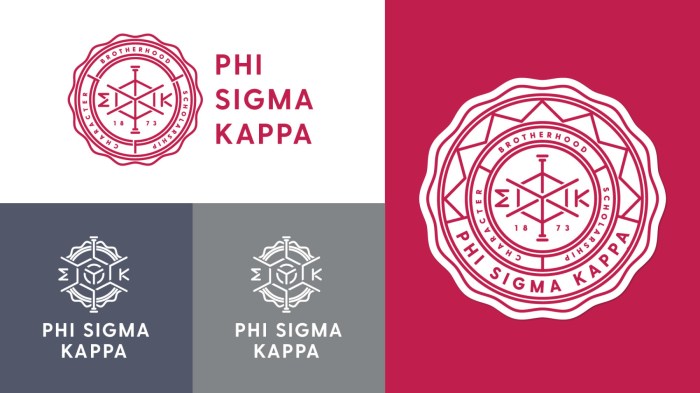
The Phi Sigma Kappa Creed encapsulates the core values and ideals of the fraternity, serving as a guiding principle for its members. It emphasizes the pursuit of knowledge, virtue, and brotherly love, reflecting the aspirations and commitments of the organization.
Core Values Expressed in the Creed
The creed espouses the following core values:
- Knowledge:The creed places a high value on the acquisition and dissemination of knowledge, encouraging members to engage in intellectual pursuits and contribute to the advancement of learning.
- Virtue:The creed emphasizes the importance of ethical conduct, integrity, and moral uprightness. Members are expected to uphold the highest standards of behavior and strive for personal excellence.
- Brotherly Love:The creed fosters a spirit of camaraderie and mutual support among members. It promotes the idea of a close-knit community where individuals care for and support one another.
Language and Symbolism
The creed employs evocative language and symbolism to convey its core values:
- “Pillars of the Fraternity”:This metaphor symbolizes the fundamental principles that support and sustain the fraternity, namely knowledge, virtue, and brotherly love.
- “Unwavering Faith”:This phrase signifies the steadfast commitment of members to the ideals of the fraternity, regardless of challenges or adversity.
- “Guiding Light”:The creed serves as a beacon of inspiration, guiding members along the path of personal and fraternal growth.
Reflection of Fraternity Ideals
The creed embodies the ideals that the fraternity holds dear:
- Intellectual Development:The creed encourages members to embrace lifelong learning and strive for intellectual excellence.
- Ethical Conduct:The creed sets forth a high standard of ethical behavior, emphasizing honesty, integrity, and accountability.
- Fraternal Bonds:The creed fosters a strong sense of brotherhood among members, promoting a supportive and inclusive community.
The Interpretation of the Phi Sigma Kappa Creed
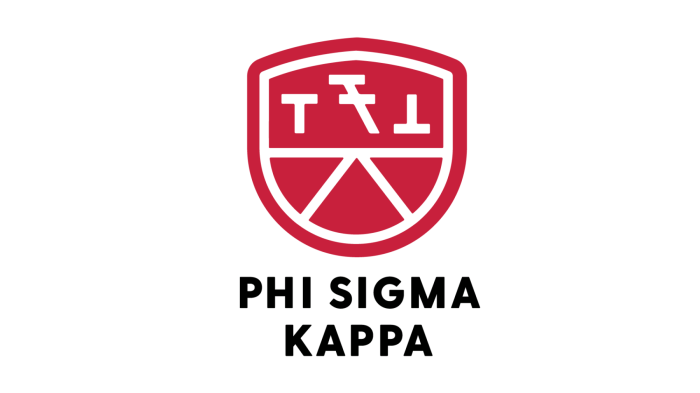
The Phi Sigma Kappa creed has been interpreted in various ways throughout its history, reflecting the evolving values and perspectives of the fraternity’s members. It has served as a guiding principle for the fraternity, shaping the identity of its members and guiding their actions.
The Phi Sigma Kappa creed emphasizes the importance of intellectual and moral development. To test your understanding of these principles, consider taking the APHG Unit 7 practice test . By completing this test, you can assess your knowledge of geography and human-environment interactions, while also reflecting on the values enshrined in the Phi Sigma Kappa creed.
The Creed as a Moral Compass
The creed has been interpreted as a moral compass, providing members with a set of ethical principles to guide their behavior. It emphasizes values such as integrity, honesty, and respect, encouraging members to strive for excellence in all aspects of their lives.
The Creed as a Bond of Brotherhood
The creed has also been interpreted as a bond of brotherhood, uniting members across generations and chapters. It fosters a sense of shared purpose and values, creating a strong sense of community among members.
The Creed as a Call to Action
In recent years, the creed has been interpreted as a call to action, inspiring members to make a positive impact on the world. It encourages members to use their knowledge, skills, and resources to serve their communities and promote the fraternity’s ideals.
Examples of the Creed’s Influence
The Phi Sigma Kappa creed has had a profound impact on the actions of the fraternity. For example, it has been used to:
- Guide the development of educational programs and initiatives
- Promote community service and philanthropy
- Set standards for member conduct and accountability
- Foster a culture of respect and inclusivity within the fraternity
The Impact of the Phi Sigma Kappa Creed
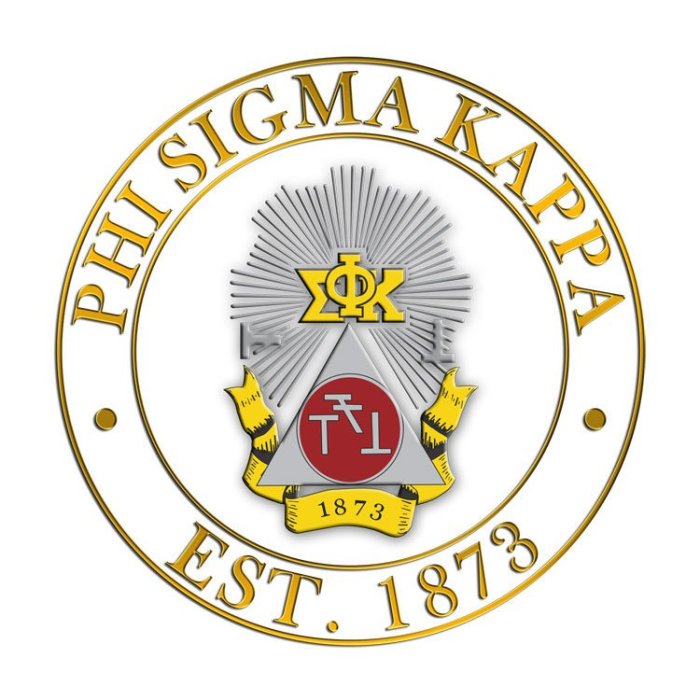
The Phi Sigma Kappa creed has had a profound impact on the fraternity and its members. The creed has served as a guiding force for the fraternity, helping to shape its values and mission. It has also inspired individual members to live lives of integrity and service.
The Creed’s Impact on the Fraternity
The creed has helped to create a strong sense of community within Phi Sigma Kappa. The creed’s emphasis on brotherhood and friendship has fostered a close-knit network of members who support each other both inside and outside of the fraternity.
The creed has also helped to establish Phi Sigma Kappa as a leader in the Greek community. The fraternity’s commitment to scholarship, leadership, and service has earned it a reputation for excellence.
The Creed’s Impact on Individual Members
The creed has had a significant impact on the lives of individual Phi Sigma Kappa members. The creed’s emphasis on integrity and service has inspired members to become leaders in their communities and professions. The creed has also helped members to develop a strong sense of self-worth and purpose.
The Relevance of the Phi Sigma Kappa Creed Today

The Phi Sigma Kappa Creed remains a vital guiding force for the fraternity in the 21st century. Its principles of friendship, scholarship, leadership, and service continue to resonate with members today, providing a framework for ethical behavior and personal growth.
Challenges Facing the Creed in the Modern World
The creed faces several challenges in the modern world. One challenge is the increasing diversity of the student body. As universities become more inclusive, the fraternity must ensure that the creed is welcoming and relevant to all members, regardless of their background or beliefs.
Another challenge is the changing nature of leadership. In today’s world, leaders are expected to be collaborative, empathetic, and inclusive. The creed must be interpreted in a way that reflects these modern leadership values.
Opportunities for the Creed in the Modern World
Despite the challenges, the creed also presents several opportunities for the fraternity. One opportunity is to use the creed as a tool for social justice. The creed’s emphasis on service and leadership can be used to inspire members to work towards a more just and equitable world.
Another opportunity is to use the creed as a tool for personal development. The creed’s principles can help members to develop their character, leadership skills, and commitment to lifelong learning.
Recommendations for Using the Creed to Guide the Fraternity in the Future, The phi sigma kappa creed
To ensure the continued relevance of the creed, the fraternity should consider the following recommendations:
- Revise the creed to make it more inclusive and welcoming to all members.
- Interpret the creed in a way that reflects modern leadership values.
- Use the creed as a tool for social justice and personal development.
- Educate members about the creed and its importance.
By following these recommendations, the Phi Sigma Kappa Creed can continue to guide the fraternity in the 21st century and beyond.
Popular Questions
What is the central theme of the Phi Sigma Kappa Creed?
The creed emphasizes the pursuit of knowledge, the power of friendship, and the importance of service to others.
How does the creed shape the identity of Phi Sigma Kappa members?
By instilling a shared set of values, the creed fosters a sense of belonging and unity among members.
Can the creed be applied to non-members?
While specifically tailored to Phi Sigma Kappa members, the creed’s principles of scholarship, friendship, and service can resonate with individuals from all walks of life.
